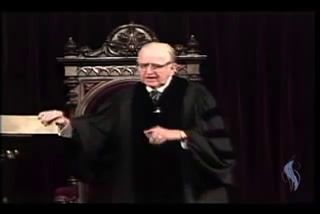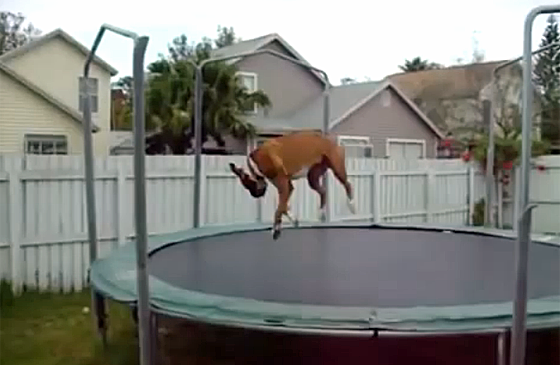
Spiritual Remedies: Bible-Based Tips for Addiction
Ty’Ann Brown shares a few spiritual remedies for those battling addiction.
View Transcript
Tuesday morning, nine o’clock. I sat in my old jalopy in the parking lot of the First Presbyterian Church, nervously smoking a cigarette and watching a parade of well-dressed women disappear behind the doors, going to a Bible fellowship class I’d told my sister, Donna, I’d take. Their makeup, their hair, their skirts and heels, everything about them seemed perfect. I looked at myself in the rearview mirror. No makeup. Messy ponytail. I’d worn my everyday clothes, jeans and a T-shirt.
I wanted to start the car and go right back home. Not just because I looked so different from them. It was more because if those women knew the way that I had once lived my life—knew who I really was—they would most likely bar the door.
Joining a Bible study wasn’t something that I had given much thought to before. That was my daddy’s department. He taught Bible history, and the Bible was his textbook. We went to church as a family but didn’t really talk about God otherwise. To me, the Bible was just another book. And I wasn’t much of a reader, or a student. Not since the eighth grade, anyway.
That year I was friends with a group of girls who seemed nice at first. Then one day at lunch one girl asked me to dump her tray. “Take mine too,” another said. “And mine,” said another. Next thing I knew, I was staggering to the trash can, trying not to drop the half dozen trays piled high in my arms.
I dumped the trash and turned back to our table. The girls were gone. They had totally ditched me! I felt like such a reject.
A terrible emptiness opened up inside of me, a sense of utter desolation, like I was all alone in the world.
I’d always felt different from the other girls, and their rejection confirmed it. I started hanging out with a new crowd who accepted me for who I was.
“Here, try this,” one of them said, passing me a joint. I smoked it so that I would feel even more connected to them, to feel like I belonged. Pretty soon I was getting stoned or drunk (or both) every day with my new friends. Booze, weed, then in high school, crack and smack. My parents didn’t know what to do.
I stopped caring about anything except getting high, and escaping the sense of abandonment that encased me.
I managed to graduate high school, but after that I became lost in a downward spiral of addiction. At one point, I got clean and sober for a few years. I was diagnosed with depression and put on medication. About two weeks after I started taking it, someone smoked a joint in front of me. “Can I have a hit?” I asked. And just like that, I relapsed.
I’d beg God for help and get clean for a couple of days only to be tempted into using again. The cycle went on for years. Sober. Relapse. Sober. Relapse.
I shudder to think what might have happened to me if I hadn’t gotten high and wrecked my car one day in 2003. Thank goodness I didn’t hit anyone. Somehow I wasn’t hurt, but I was put in jail for a couple of weeks.
One night, sitting in that cold, lonely cell I sensed rather than heard something tell me, I’m here. Or was it someone? Was God trying to get my attention? Lord, help me out of this, I prayed. Help me stay clean for good. I knew if I went to rehab when I got released it would help my chances of staying out of prison…and, maybe, just maybe it would work.
So that’s where I went—a six-month treatment center. It was there that an anger at God flared in me. I couldn’t count how many times I’d asked for his help getting clean. Why had he let me suffer with this disease and remain a miserable failure all these years? Why had he let me down?
“Fine, have it your way!” I shouted one day. “I’m yours. All yours. Do what you want with me.”
Little did I understand it then, but that was the first time I really turned my life over to God’s care. And in that moment of surrender, the seed of my sobriety was planted.
I left rehab committed to my recovery like I had never been before. I found a 12-step meeting and kept going back day after day, month after month. I drew closer to my mom and my sister (I was so grateful that my addiction hadn’t destroyed our relationship). I just wished that my daddy had lived to see me like this.
It was partly in his memory that I started going to church. I even picked up the Bible. But I couldn’t get a handle on Scripture and didn’t make much headway.
All in all, though, my life was pretty much on track after three years of sobriety. So why did depression still haunt me? It wasn’t the utter desolation I had felt in eighth grade, rejected by my so-called friends. The antidepressant meds were helping. But some days I felt so tired and hollow, it took everything I had to get out of bed and drag myself to my 12-step meeting.
I didn’t want to unload my problems on my sister—she had enough going on raising two little kids on her own after her divorce. But lately I’d noticed that she seemed less stressed. Happier. Hopeful. One day when we were talking on the phone I opened up. “It’s like I’m in a deep dark hole and I can’t climb out,” I said.
“When I feel overwhelmed, I recite Bible verses,” Donna said. “They remind me of God’s promises to us.”
So that’s what’s helping her, I thought. I’d never gotten very far with my Bible reading, certainly not enough to know verses by heart. “You mean you memorize verses and repeat them?” I asked, wanting to know more.
“That’s right,” she said. “I just signed up for this weekly program that sounds really great: BSF, Bible Study Fellowship. They study the Bible line by line.”
Donna lived an hour away, but BSF was held at a lot of locations, so she said that we could attend in different places, then talk about the week’s lesson over the phone.
“Okay, I’ll give it a try,” I said.
Now here I was, sitting in my car outside First Presbyterian Church, paralyzed by anxiety. What if I didn’t belong here? I wasn’t much of a reader. . .what if it just didn’t click for me even going line by line? What if these Bible study ladies turned on me like those mean girls from the cafeteria back in eighth grade? I stubbed out my cigarette and closed my eyes, trying to block out those awful memories.
At that moment, a 12-step saying popped into my head: Do the next right thing. Okay, I could handle that. I got out of the car. Walked up to the church. Opened the heavy wooden doors and stepped into the sanctuary. Women were in the pews and the aisle, talking and laughing. One of them caught my eye.
I cringed, thinking, I probably have “loser” written all over me.
But she said hello and gave a friendly nod. So I nodded back.
Do the next right thing.
I took a seat in a pew. After a few minutes we left the sanctuary and gathered in a classroom. “Welcome to BSF,” the woman at the front announced. “I’m Paula.” She broke us up into small groups where we introduced ourselves.
Here we go, I thought. No turning back now. “My name is Denise and I’m looking forward to learning more about God’s word.”
Paula explained how the class worked: We’d open by singing a few hymns. Then we’d break into our small groups to discuss a specific passage. To close, she’d give a short lecture along with notes. This year’s study was about Moses. We would start with Exodus and go through Deuteronomy. I listened carefully and took a lot of notes but didn’t say much.
The next morning, depression lay on me like a thick, heavy blanket. I didn’t want to get up, but it was as if God knew how much I needed to study his word and got me up. I grabbed my notes and Bible. I meant to turn to Exodus but opened to Joshua 1. Verse nine practically leapt off the page: “Be strong and courageous; do not be frightened and do not be dismayed, for the Lord your God is with you wherever you go.”
A shiver ran down my spine. God had been with me when the girls from the cafeteria dissed me? When I crashed my car? When people wrote me off as a hopeless addict? I may have been a pathetic reject in everyone’s eyes, even my own. But never in God’s. That was what he’d been trying to tell me that night in jail: I’m here with you. Always.
I found a pretty green journal in my nightstand and copied down the verse. I carried the journal with me wherever I went. When I felt like getting high or hiding from the world, I used my verse as a shield, whispering the words until I’d fended off those destructive thoughts. Talking to Donna about the class helped too.
At BSF the following Tuesday, I silently recited the verse. Don’t be afraid to be yourself. God is with you, I told myself. Still, it took a month of listening to the other women in our small group share about their lives before I finally opened up. “I had a serious drug problem,” I said. “I’m blessed to be alive and sitting here with you all.”
The group fell silent. Oh, no, did I over-share?
A classmate spoke up. “Thanks for saying that, Denise. It’s good to know we can talk about anything.” At the end of class, several women confided in me about their loved ones struggling with addiction.
Another time, after a lecture, I told Paula, “I’m so grateful for this class. I write some of the verses in my journal and recite them when I’m feeling down or depressed.”
“I’ve been depressed too,” she said. “You don’t have to believe the bad things you feel. Call me anytime.”
Little by little my depression lifted. It wasn’t just the verses, it was those “perfect” women that I turned out to have plenty in common with. They’re more than Tuesday-morning classmates, they’re full-time friends. They even picked me (yes, me!) to encourage others to join our group by telling them my story.
Now I’m eight years clean and sober. Like everyone, I have down days, only they don’t keep me down for long, thanks to a little green journal filled with God’s promises and a Bible study filled with good friends.
This story first appeared in the February 2013 issue of Guideposts magazine.










